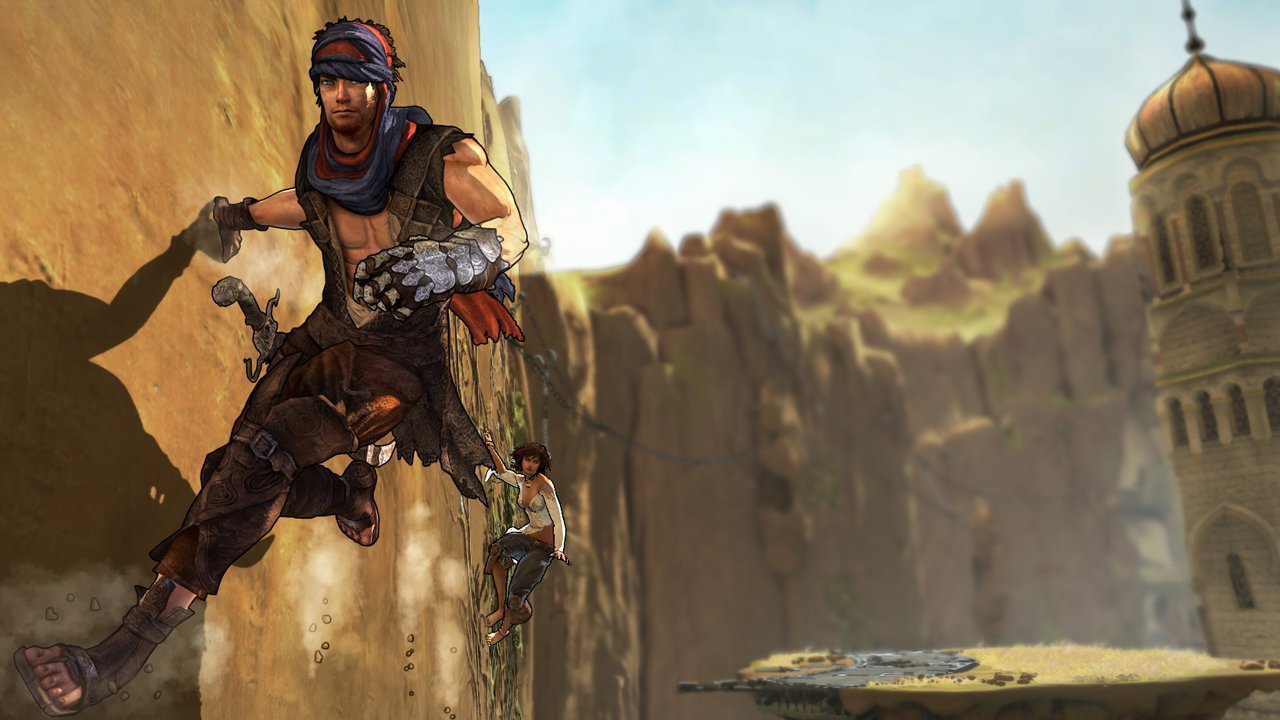Should The Prince Make A Comeback?
(POP Spoilers Follow)
It’s a bit unsettling to me to think back and realize that the last time we had a new Prince of Persia game, it was back in Christmas of 2008. It was supposed to be a reboot the series, taking the Prince we all knew and loved and giving him a high-def debut, complete with Nolan North as the voice of the prince for the HD generation, and, like Assassin’s Creed, the start of a new, profitable franchise for Ubisoft. Instead, five years later, we got a mobile game and no peep at any E3 or Gamescom about the fate of the series on consoles. Unfortunately, given the problems that the reboot had, at this point, I’m not particularly aching for a new iteration in the series. At least, not if it’s going to continue the story that began in the last game.
This, of course, isn’t the first time the Prince of Persia series has been rebooted by Ubisoft; it’s just not as successful. Jordan Mechner released the original game in the 80s after his Apple II debut, Karateka. When Ubisoft snapped up the rights, they released Prince of Persia: The Sands of Time in 2003, with Mechner still working on the title in the capacity of consultant, writer and designer. It was a big hit, featuring that other go-to voice actor, Yuri Lowenthal as the Prince. The story was simple, engaging and similar to a fairy tale, with an evil wizard, an arrogant hero, a strong princess, and a quest to make things right after unleashing the sands of time, a force that could destroy Persia, released by the Prince and contained by him when he learns about humility and responsibility. It also had some fantastic platforming elements and the unique ability to slow or rewind time, as well as simple but fast-paced combat. It was a big hit, that was let down by a grungy, gritty sequel, The Warrior Within, although it managed to step away from the brink of failure with a nice recovery in The Two Thrones.
With the 2008 version, Ubisoft worked on a blank slate and gave the audience something altogether different. A more “painterly” art direction was adopted that showed off the talents of Ubisoft’s art teams, as well as the technology they’d perfected for the HD generation. It was a good looking game with some impressive tech under its hood, but there were some significant problems. The new, unapologetically American Prince as voiced by Nolan North, wasn’t even a prince, but more of a puckish rogue and thief in the tradition of Han Solo, immediately raising questions as to how this was even a “Prince” game, rather than “Rogue/Thief of Persia.” Gone was the time manipulation mechanic, exchanged for a new “Elika mechanic” in the form of the princess being not just a companion, but a support system, preventing death and being used for attacks and enabling magical feats of acrobatics. The nerve-wracking platforming of the past games was abandoned for an easier, more consumer friendly, semi-automated system that took much of the navigation away in favour of guided timed button presses.
Most disappointing of all was the story, which learned nothing from the errors of Warrior Within and its attempt to create a “dark n’ gritty,” prince. As if ashamed of the, lighter, fairy tale roots of the franchise, the 2008 Prince of Persia took a dark, conflicted turn, in which the princess died in order to make the ultimate sacrifice to prevent evil from ruling the land and the prince/rogue/thief, undid her work, not caring about the fate of the world, in order to bring her back. This completely negated everything the player did over the course of the game, and it was not received well. The sales of 2008 POP were less than three million, compared with the first Assassin’s Creed which sold over eight million and went on to become an annual franchise.
Perhaps the problem with Prince of Persia is that it no longer fits with Ubisoft’s tone for games. Assassin’s Creed, Splinter Cell, the upcoming Watch_Dogs and The Division all share one thing in common; they are serious games with dark undertones and gritty characterization. The Prince of Persia games have never been that, and when Ubisoft tried to bring the franchise emotional tone in line with their other AAA games, the audience reacted badly. The facts speak themselves; there hasn’t been a new Prince of Persia game on consoles in five years. Of course, Ubisoft has games of a lighter fare, such as Rayman and Just Dance, but those games—for better or worse—no longer appear to be considered “serious AAA” games. Ubisoft’s top tier games are generally fixed on dark themes, moral ambiguity and the depressing state of the world. Prince of Persia is not that, and it failed when it tried to be that. Maybe Ubisoft has given up on the franchise as a “serious IP” since that dark n’ gritty tone is the specialty of their top tier developers.
We now live in a gaming culture where people look forward to the next Call of Duty, the next Grand Theft Auto or the nextElder Scrolls game. Despite that, we still hear some people clamouring for a new Final Fantasy, Legend of Zelda or even newAce Attorney games which are usually lighter in tone, but when was the last time there was a concerted effort to demand a new Prince of Persia game, let alone a continuation of the storyline started in the 2008 version? Has the time when an audience could accept the antics of the Prince come and gone?




